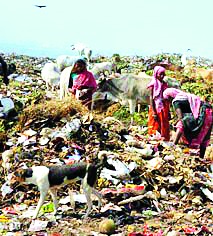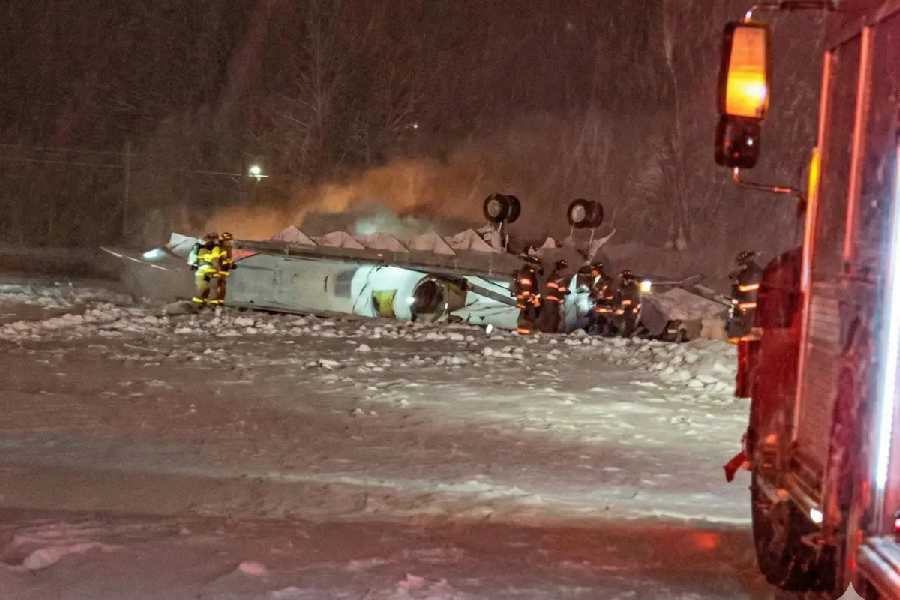
THE TRASH DIGGERS:RETHINKING SOLID WASTE MANAGEMENT IN URBAN INDIA By Dhrubajyoti Ghosh, Oxford, Rs 995
The Trash Diggers is Dhrubajyoti Ghosh's paean of joy and despair at the rapidly-diminishing wonder - the Dhapa dumping area, part of the East Kolkata Wetlands - that makes it possible for Calcuttans to continue living in their city, and the unnoticed, unknown, unwept, unhonoured and unsung heroes and heroines who toil there, for pitifully low wages, maintaining and sustaining a miracle of urban waste management recognized the world over, except, tragically, in the very city it serves. There is no other comparable example of transforming urban solid waste and waste water into productive resources, primarily vegetables and fish (using just human ingenuity, hard labour and sunshine) anywhere else in the world. Yet the denizens of this otherwise aware and sensitive city seem strangely blind to this astonishing, internationally-acknowledged, eco-friendly, environmentally-sound, and sustainable, system operating - quite literally - under their very noses.
On the contrary, urbanites turn up their noses at this Ramsar site, which does not have a single signboard proclaiming its presence in the long stretch from Dum Dum airport to New Garia along which they travel every day, bemoaning the 'dirt' and the 'stench', when really they should have been offering up prayers of gratitude that they can continue to live in their overcrowded tropical city simply because Dhapa still operates.
What The Trash Diggers does is give the people who turn our waste into wealth names and histories and identities, transforming them into human beings instead of letting them remain the half-glimpsed, never-remembered toiling bodies they typically are for people like us. This is both an act of long-overdue tribute as well as a plea for Calcutta's citizens to act now, before the situation goes from critical to irretrievable. In keeping with its (to us) slightly peculiar subject-matter, the book begins with a preface not from some eminent ecologist or environmentalist (as it could so easily have) but from the trash-digger, Soshthi Mondal, brother of the vivacious Kalyani Mondal who was crushed to death under a bulldozer's tracks on February 20, 2015, as she was sorting trash on the Dhapa dump site. Soshthi Mondal's prefatory words are worth quoting: "The vegetables we grow [on the Dhapa site] go to the markets. You buy them cheap. But no one talks about what will happen to us tomorrow. We live in constant fear about our future. If you look at these pictures, perhaps you too will think of us."
The Trash Diggers might make you feel guilty, or angry, or fill you with self-loathing (it did all three to me) but it will not leave you indifferent. You can learn about the remarkable Bhabanath Sen, who set up Dhapa's waste-recycling system in the 19th century; see the people, animals, places, things and processes which transform our detritus into saleable goods and edible produce; and look at satellite images of shrinking greenery and waterbodies and increasing high-rise human habitation. As plans are concretized for building flyovers and elevated roads through the East Kolkata Wetlands, and the possibility of protecting this unique ecosystem shrinks by the day, The Trash Diggers becomes less a call to action and more a dirge to what could have been but wasn't, thanks to our indifference and apathy. So buy this book, gift it to your friends, donate a copy to your local library - not because you will be able to do anything to prevent the death of the EKW, but because a good obituary is always a pleasure to read.










